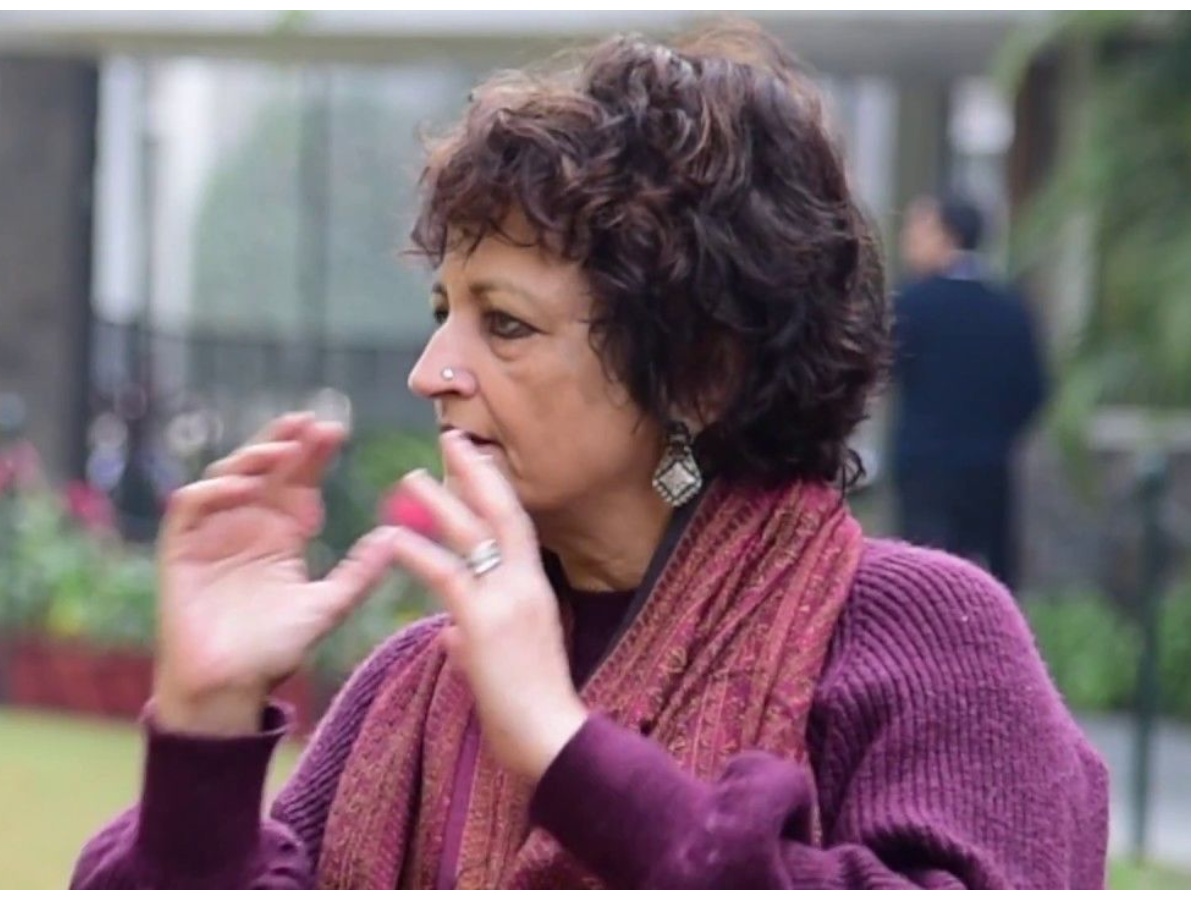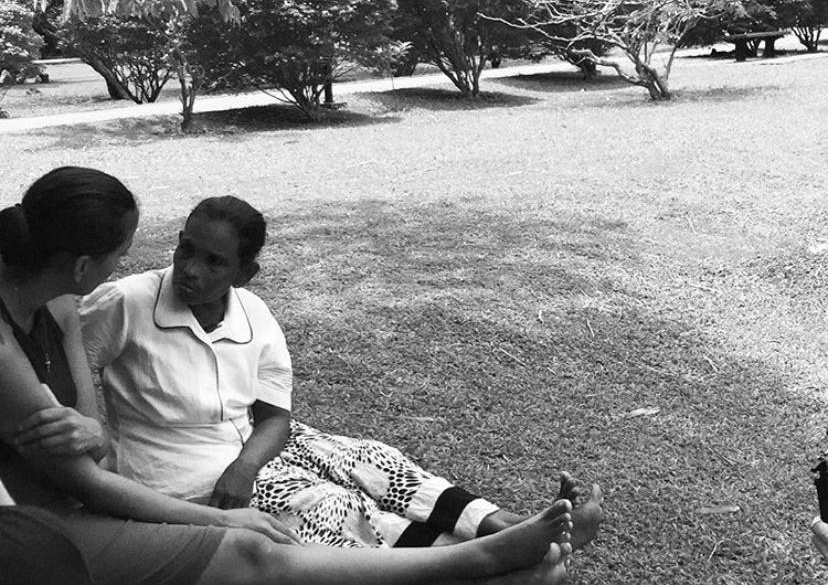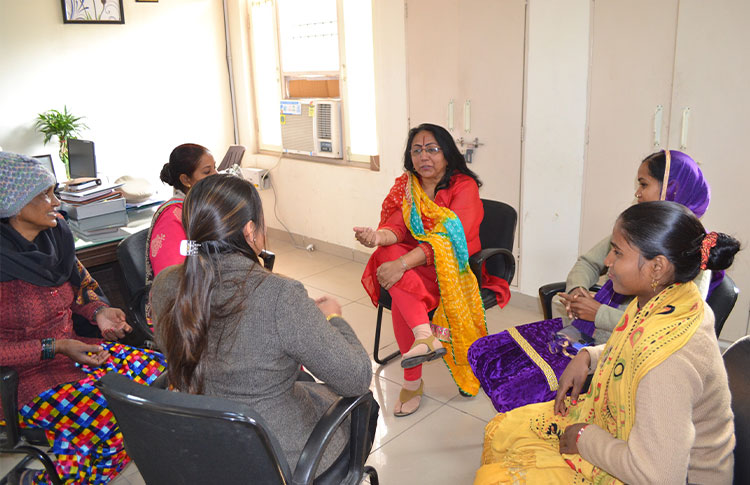HIJAB IS MY RIGHT
- IWB Post
- April 22, 2014

Hijab, its literal meaning is to veil, to cover or to screen. Hijab is one of the most misunderstood and most misused subjects in the world at the moment. The truth is that is more than just a dress code; it is concerned with moral boundaries and respect for a woman.
The first recorded instance of veiling or covering the hair of women is recorded in the Assyrian legal texts from the 13th century BC. Its use was restricted to noble women. In both the ancient empires of Greece and Rome there is evidence that points to various degrees of head coverings worn by females. Particularly in Rome it seems that head coverings were associated with prayer and devotion. While in Greece the evidence determined by sculpture and pottery from that time leads many to believe that respectable women covered their heads outside the home.
The Bible verses to which Christians refer to when explaining why women should cover their heads, especially in prayer or in church comes from Saint Paul in his letters to the Corinthians. 1 Corinthians 11:5, says that “Every woman who prays or prophesies with her head uncovered dishonours her head, for that is one and the same as if her head were shaved.” The early Christian women veiled their heads in church and anytime they were in public. A Christian woman who becomes a nun is said “to take the veil”. This is said in reference to her head covering.
People usually discuss Hijab in context of women. However, in the Holy Quran Hijab is first mentioned in respect of men, before Hijab – for women.
“Say to the believing men that they should lower their gaze and guard their modesty; that will make for greater purity for them; and Allah is well acquainted with all that they do. And say to the believing women that they should lower their gaze and guard their modesty; and that they should not display their beauty and ornaments except what must ordinarily appear thereof; that they should draw their veils over their bosoms and not display their beauty except to their husbands.“ (Quran 24:30-31).
Therefore, it is not expected from women alone to uphold society’s morality and uprightness. Rather, the concept of hijab is holistic and encompasses both men and women.They mutually have to strive to create a morally healthy social environment. This is the most essential need of today’s morally degrading society.
One of the most common questions today, asked by Muslims and non-Muslims alike, is – Why do Muslim women cover their heads?
To find the answer let’s look into another Ayah from the Quran:
“O Prophet! Tell your wives & your daughters and the women of the believers to draw their cloaks all over their bodies. That will be better, that they should be known as (respectable woman), so as not to be annoyed…”
(Ayah No. 59, Surah Al-Ahzab, Chapter No. 33, Holy Qur’an).
For women, the extent of covering required is to cover the complete body except the face and hands up to the wrists. If they wish to, they can cover even these. Some scholars are of the view that face should also be covered. However, it is up to an individual to adopt whichever view she chooses to; both views are correct. Other conditions which are mandatory in Hijab are that the clothes worn should be loose and should not reveal the figure. The clothes worn should not be transparent such that one can see through.
Hijab is ordered due to certain reasons and there are exemptions also:
“And as for women past child-bearing who do not expect wed-lock, it is no sin on them if they discard their (outer) clothing in such a way as not to show their adornment. But to refrain is better for them….”
After reading this ayah, we understand that elder women/ women who have attained Menopause have a choice of not wearing their Outer Coverings when they go out.
Some people argue: Decent clothing is what Hijab refers to. Woman who observes Hijab should wear an outer clothing to cover herself and her ornaments properly and that is what Hijab asks for.
Besides the above mentioned criteria of clothing, Hijab also includes moral conduct, behaviour, attitude and intention of the individual. Hijab of clothing has to be accompanied by Hijab of eyes, Hijab of heart, Hijab of tongue, Hijab of thoughts and intentions. Hijab is not merely a covering dress, but more importantly, it is behavior, manners, speech and appearance in public.
Another misconception is the belief that Muslim women are forced to wear hijab. For the vast majority of Muslim women, nothing could be farther from the truth.
Indeed, deciding, finally, to wear hijab is often difficult. Fear of negative consequences and reactions from family and/or the wider society; and ultimately, the need for plenty of courage weigh heavily in reaching the decision. Wearing hijab must be a very personal and independent decision.
Dr. Safiya is one of the millions of such independent women who opted for Hijab when they could’ve lived their lives without it. She has done her Doctorate in Psychology from Rajasthan University and is now newly married:
Ruby: When and why did you decide to wear a Hijab?
Safiya: I started wearing Hijab 5-6 years back. People often feel that I wear this due to pressure or some obligation, but the truth is far from that. I and my elder sister who is a qualified Doctor decided to wear Hijab during our college years. It was our decision, and we stuck to it despite pressure to abandon it. Hijab never disturbed our course of studies, or selection of the career.
Ruby: What were reactions of the society when you decided to opt for Hijab?
Safiya: When we decided to opt for Hijab in the college, people were shocked and asked questions like – Why Hijab? What is the need for it? You do not look good in it. You are educated girls and why are you taking such a backward step? If you wear Hijab, you might have problems in finding suitable groom.
Ruby: How did you face these questions?
Safiya: When I was asked about it, I used to ask back why I should not wear Hijab. People answered because you will look good without it. I asked back – To whom? People replied, to others and to yourself too. Then I tell those people that why should I show myself to others and feel beautiful. If showing one’s body and skin is the criteria of beauty then animals are the most beautiful creatures. But is it so?
Ruby: According to you what is the importance of Hijab?
Safiya: For me, Hijab is not only a garment but it is my Strength, my Honour, my Love and Devotion for my dear husband. He respects my decision and strong will for Hijab and my submission to the will of Almighty Allah, my Lord. When, I drive my scooty or car in Hijab, people do look but I do not care because I know I’m covered and I’m proud of it. It has never hindered my freedom . A girl can wear a hijab and fly a plane or play basketball, who’s stopping. Hijab does not degrade you; it is in fact a compliment to a Girl, that she is special. Just think for an instance if you could expose all your precious jewels and cash in public? If something wrong happens, then whose mistake will be in the first place: the owner who has exposed his money or the thief who has taken them? I truly feel that –
रब ने हम औरतों को तराश कर हीरे से भी कीमती बनाया है,खुद को सबके लिये आम कर के रेत के ज़र्रो में क्यों मिलनें दें(God has made women more precious than diamonds, why should we expose ourselves and mix with scattered granules of sand).
Ruby Khan,
Jaipur Women Blog Journalist
- 0
- 0











